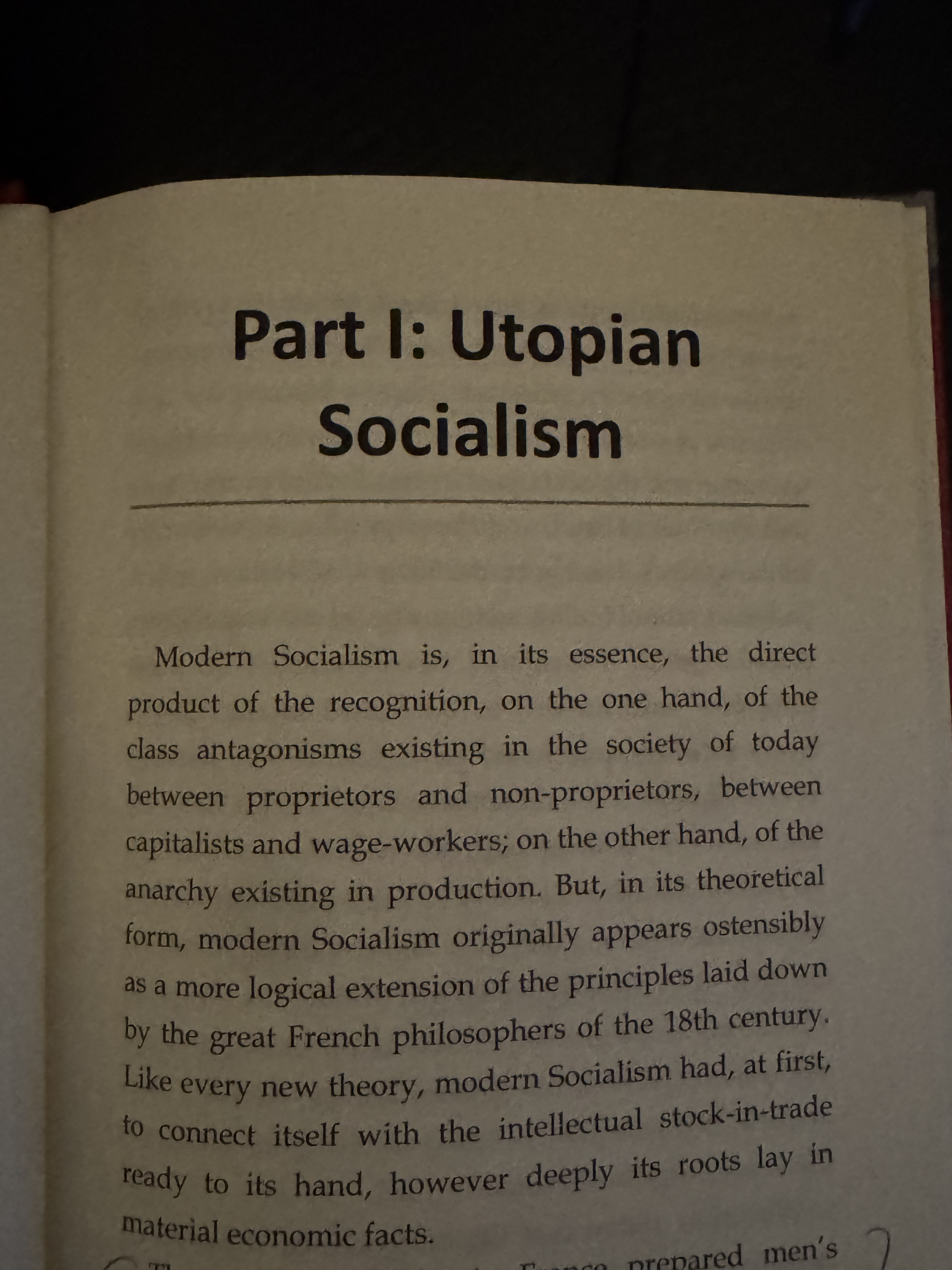
In the book Socialism: Utopia and Scientific, Engles talked about how early socialists like Claude Henri de Saint-Simon, Charles Fourier and Rober Owen approached socialism from an idealistic perspective, they were able to identify the issues with capitalism but failed to explain why it was horrible. They could only simply reject it as bad.
The Socialism of earlier days certainly criticised the existing capitalistic mode of production and its consequences. But it could not explain them, and, therefore, could not get the mastery of them. It could only simply reject them as bad. The more strongly this earlier Socialism denounced the exploitation of the working-class, inevitable under Capitalism, the less able was it clearly to show in what this exploitation consisted and how it arose.” — Engels, Socialism: Utopian and Scientific, Ch. II.
The problems with early socialist thinkers was that they wanted to implement socialist polices out of the kindness of their heart by changing the way society thinks. They believed through moral and reasoning society can change.
For example, Robert Owen, one of the most practical among them, tried to convince the bourgeoisie of his time that improving workers’ conditions, shorter hours, education for children, fair wages, and decent housing would benefit everyone, even the employers themselves. He argued that a rational reorganization of industry could eliminate poverty and crime, creating harmony between classes.
But the bourgeois class rejected him. The more Owen appealed to their conscience, the more they despised him. They saw his ideas not as moral reform but as a threat to their profits and power. Engels points out that Owen’s experience revealed the reality the utopians could not yet see clearly: that the interests of the working class and the capitalist class are fundamentally opposed. The ruling class cannot be persuaded out of exploitation by moral arguments, because exploitation is the very foundation of their wealth.
The utopians believed socialism could be achieved within bourgeois democracy by appealing to its ideals of equality, liberty, and reason. They imagined that once people, especially the wealthy and educated recognized the irrationality of exploitation, they would voluntarily reorganize society for the common good.
Engels criticizes this view because those ideals were shaped by the interests of the bourgeoisie, not by the needs of humanity as a whole. Bourgeois equality meant equality before the law, not equality in ownership or production; bourgeois freedom meant the freedom to trade, not freedom from exploitation. The utopians mistook these narrow, class-based ideals for universal human principles.
In summary, Engles saw the Utopian Socialists as vision Aries trapped by their time, morally driven thinkers who recognized the injustices of capitalism but lacked a scientific understanding of it’s inner workings. Their belief that reason and goodwill could persuade the ruling class to change ignored the fundamental conflict of interest between labor and capital. For Engles, socialism could not emerge from moral appeals or bourgeois ideals of equality and liberty, but only through class struggle, when the working class become conscious of it’s position and fights to transform society from the ground up.